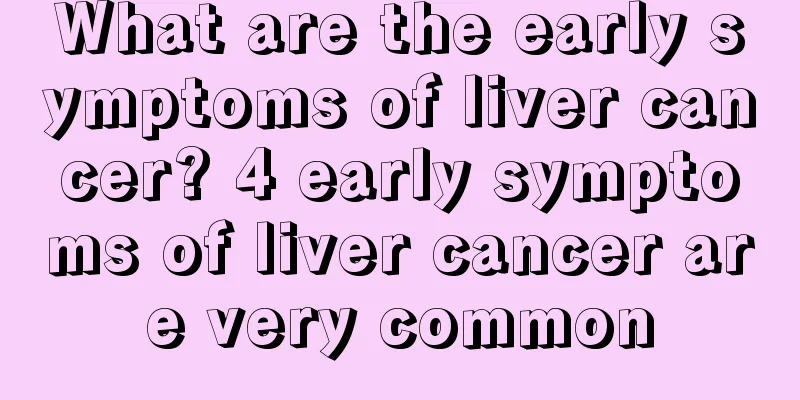How do you confirm that you have mumps?

|
Mumps is actually not scary. As long as it is discovered in time and isolated and treated, the patient can recover quickly. However, if some friends do not understand the symptoms and diagnosis methods of mumps, the disease may spread more seriously. To determine whether you have mumps, you must understand the symptoms of mumps. The onset is usually acute, with symptoms such as fever, chills, headache, sore throat, poor appetite, nausea, vomiting, body pain, etc. After a few hours to 1 to 2 days, the parotid gland becomes significantly swollen. The fever ranges from 38 to 40°C, and the severity of symptoms is also very inconsistent. Adult patients are generally more serious. Parotid gland swelling is the most characteristic, with one side swelling first, but there are also cases where both sides swell at the same time. It is usually centered on the earlobe and develops forward, backward, and downward. It is pear-shaped and tough, with unclear edges. When the gland is obviously enlarged, distension, pain and hyperesthesia will occur, which will be more severe when chewing with the mouth open or eating acidic foods. The local skin is tense and shiny, and the surface is burning, but it is usually not red and is painful to the touch. The cellulite around the parotid gland may also become edematous, reaching the temporal region and zygomatic arch, and down to the jaw and neck. The sternocleidomastoid muscle may also be affected (occasionally edema may occur in front of the sternum), thus deforming the face. 1. Peripheral blood count To determine whether a person has mumps, the white blood cell count is mostly normal or slightly increased, and the lymphocyte count is relatively increased. When there are complications, the white blood cell count may increase, and leukemoid reactions may occasionally occur. 2. Serum and urine amylase determination 90% of patients have mild and moderate elevations in serum amylase, which helps with diagnosis. The degree of increase in amylase is often proportional to the degree of parotid swelling. However, its increase may also be related to lesions of the pancreatic and small intestinal serous enzyme glands. 3. Serological examination (1) Neutralizing antibody test: A low titer such as 1:2 indicates active infection. In recent years, the gel hemolysis test has been used, which is basically consistent with the neutralization test, but is simpler and faster than the detection of neutralizing antibodies, but the method still needs further improvement. (2) Complement fixation test: It has auxiliary diagnostic value for suspected cases. If the titer of two serum samples (early stage of the disease and 2-3 weeks) increases by more than 4 times, or the titer of one serum reaches 1:64, it has diagnostic significance. If conditions permit, it is advisable to measure S antibody and V antibody at the same time. An increase in S antibody indicates a recent infection, while an increase in V antibody but no increase in S antibody only indicates a past infection. (3) Hemagglutination inhibition test: The amniotic fluid and allantoic fluid of chicken embryos infected with the virus can cause the chicken's red blood cells to agglutinate. The convalescent serum of mumps patients has a strong inhibitory effect on agglutination, while the inhibitory effect of early serum is weaker. If the titer of two measurements differs by more than 4 times, it is considered positive. 4. Virus Isolation In early cases, mumps virus can be isolated from saliva, urine, blood, cerebrospinal fluid, and other tissues such as the brain and thyroid. The procedures are rather complicated and there are currently no conditions for its widespread implementation. 5. Urinalysis When the kidneys are affected, proteinuria, red and white blood cells, etc. may appear in the urine, and even changes in the urine similar to nephritis may occur. 6. Electrocardiogram When combined with myocarditis, the electrocardiogram shows arrhythmia, flat T waves, and depressed ST segment. |
<<: What to do with functional dyspepsia? The following two aspects should be mastered
>>: What are the symptoms of flu
Recommend
Quick way to treat headache
Headaches are common in daily life. Some are isol...
What are the common symptoms of bladder cancer
As people continue to pay more attention to healt...
What are the disadvantages of shaking your legs frequently
In daily life, many people will unconsciously sha...
Honey for conjunctivitis treatment
The eyes are a particularly fragile area of the...
How to treat lung cancer better? Three methods are the best for treating lung cancer
There is a saying in our country: whether you are...
Purple sweet potato steamed bun calories
Purple sweet potato is a food that can be used as...
The manifestations of esophageal cancer vary depending on where it occurs
Before the onset of esophageal cancer, most patie...
Is there any harm in tooth extraction
Tooth extraction is a common method of treating d...
Pain in the lower left side of the abdomen
Abdominal pain is a very common symptom, but if i...
Small red bumps on face
The appearance of small red pimples on the face m...
Can color Doppler ultrasound detect liver cancer? Should I choose B-ultrasound or color Doppler ultrasound for liver cancer examination?
Liver cancer is a very frightening malignant tumo...
What are the symptoms of lung cancer liver metastasis
Lung cancer liver metastasis is a daunting topic,...
What is the mortality rate of pituitary tumors
For every sick patient, only through good treatme...
Will there be any sequelae after brain cancer is cured?
Are there any sequelae after brain cancer is cure...
What does it mean when big triple positive turns into small triple positive
In life, many people cannot distinguish between b...









